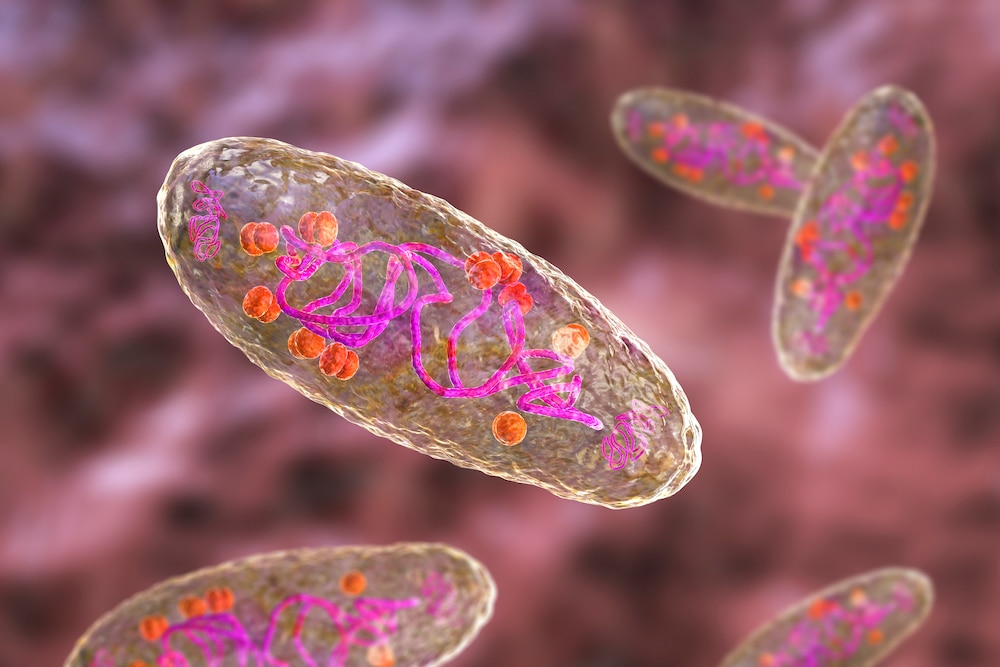Create a free profile to get unlimited access to exclusive videos, sweepstakes, and more!
The Black Death changed our DNA and we're still paying for it
Eight hundred years later, we're still feeling the ripples of The Plague.

Fast & Furious Presents: Hobbs & Shaw is a lot of things. It’s totally ridiculous, mindless fun, and there’s nothing wrong with that, but it’s also an exploration of what it means to change ourselves and those around us. Whether it’s the rather obvious juxtaposition of ordinary – albeit unusually muscled – humans versus the scientifically enhanced Idris Elba or the slightly less on the nose Snowflake virus, which can be reprogrammed to either kill humanity or effortlessly deliver vaccines, it’s really all about change.
One way or another, by the time the cars skid to a stop and the credits roll, the fate of humanity will have been decided. Apologies for the spoilers if you haven’t seen Hobbs & Shaw in the last three years, but Elba’s Brixton Lore is defeated and the world is saved. Hoorah! Score one for the good guys, we’re going to need it to feel better about the fact that nature has been kicking dirt in our eye for centuries. Longer.
An international team of scientists led by researchers at McMaster University and the University of Chicago argue that infectious disease is one of the strongest selection pressures humanity faces, and that’s especially true during particularly vicious disease outbreaks. Their new study, published in the journal Nature, focuses on what scientists refer to as “the single greatest mortality event in recorded history,” the Black Death pandemic which spread throughout the world in the fourteenth century.
RELATED: DNA from an ancient grave reveals the Black Death’s patient zero
Considering that the disease wiped out large swaths of the human population, with some regions losing upward of half of their populace at once, it makes sense that we might have undergone some adaptive changes as a result of exposure to Yersinia pestis, the bacteria which causes Black Death.
To find out, researchers gathered DNA samples from 206 Europeans from two different population groups. One group was in Denmark while the other was in London, and both groups had representatives from before, during, and after the Black Death swept through the area. Of the 206 total individuals represented in the DNA data, 67 lived before the pandemic, 97 lived after it had ended, and the remaining 42 lived during the plague and died from the disease.
Scientists compared the DNA samples over time, looking for genes which might have been altered as a consequence of natural selection, specifically genes which might have mutated in response to the plague. They initially found hundreds of potential candidates, but were able to narrow the search by looking for genes with frequencies which were opposed before and after the pandemic.
The thinking here is that any beneficial mutation would necessarily be rare among people who died of the plague, but we would expect their frequency to increase among the survivors. From the hundreds they initially identified, limiting to genes with that characteristic reduced the total list to 35. From there, scientists compared changes in both population groups, in Denmark and London, to see which changes showed up in both places, something else we would expect if the changes were driven by a commonly experienced disease. That brought the list down to four genes, all of which appear to have been enhanced in response to the plague pandemic.
Later tests in the lab suggested that the mutated versions of those four genes helped to protect our medieval ancestors from Y. pestis and a whole bunch of other diseases too. Among the adaptations were changes which make the immune system better at detecting proteins on the surface of the bacteria. That makes it easier to identify and kill. Another adaptation makes immune cells better at talking to one another, so that once one cell learns about the invader it can tell everyone else. Researchers estimate that people with two good copies of this beneficial mutation were 40% more likely to survive an infection than their peers. In the midst of a deadly disease, our immune systems were busy working not just to keep our ancestors alive but to make them better suited for surviving in the future. The only trouble is they didn’t consider the cost.
Those very same genes which may have helped our ancestors avoid death while the world crumbled around them have also been linked to a buffet of modern autoimmune disorders. In the calculus of the moment it makes a kind of sense. Even if those people, surrounded by their dead and dying loved ones, could have known that evolving would mean inflammatory bowel disease for their descendants, would they have cared? Could they have cared? And would we blame them if they didn’t?
In the end, it probably doesn’t matter. They did what they did. They survived. And now we’re paying the price for our ancestors’ survival of the Black Death with creaky joints and chronic pain.


























